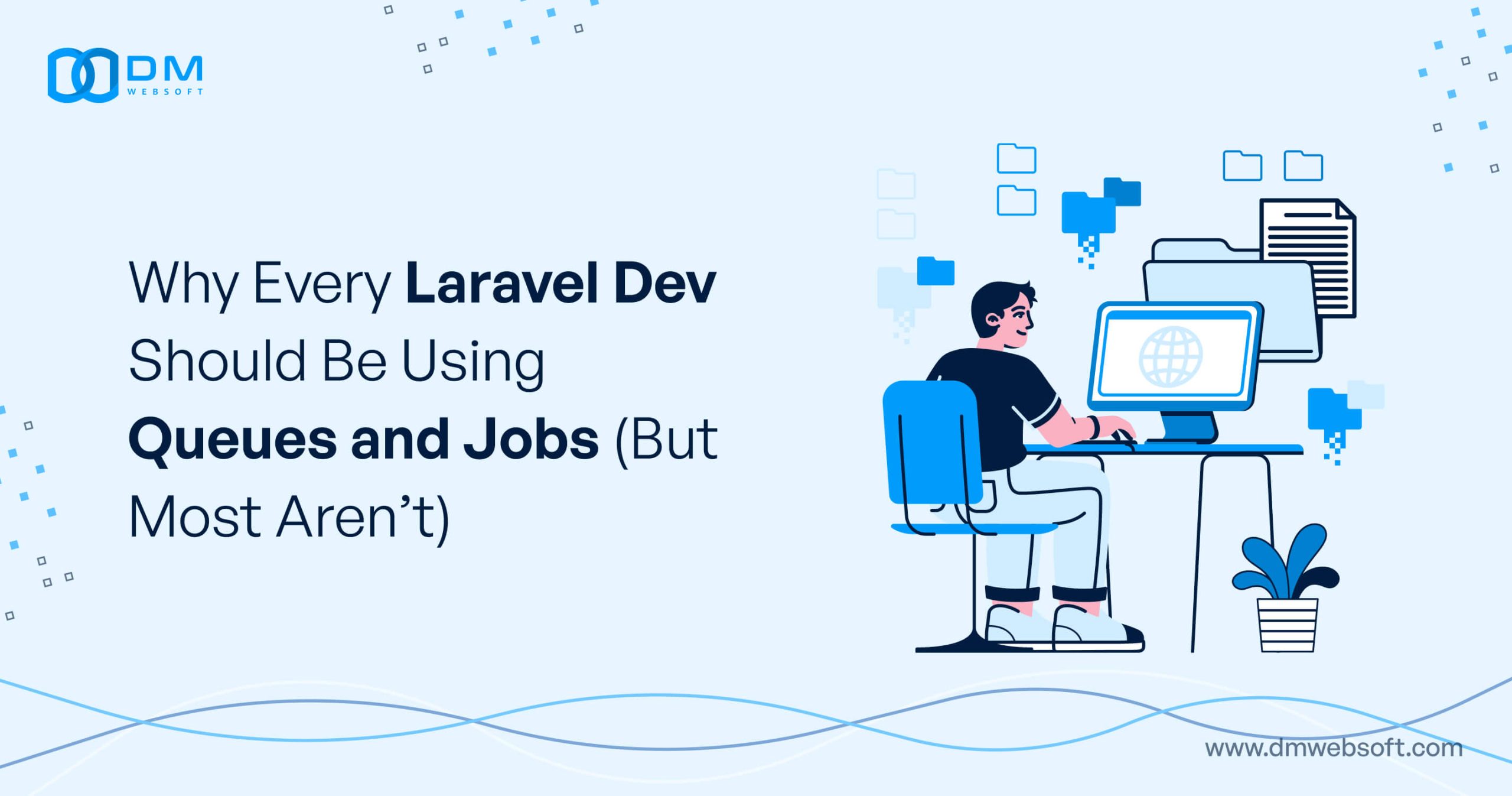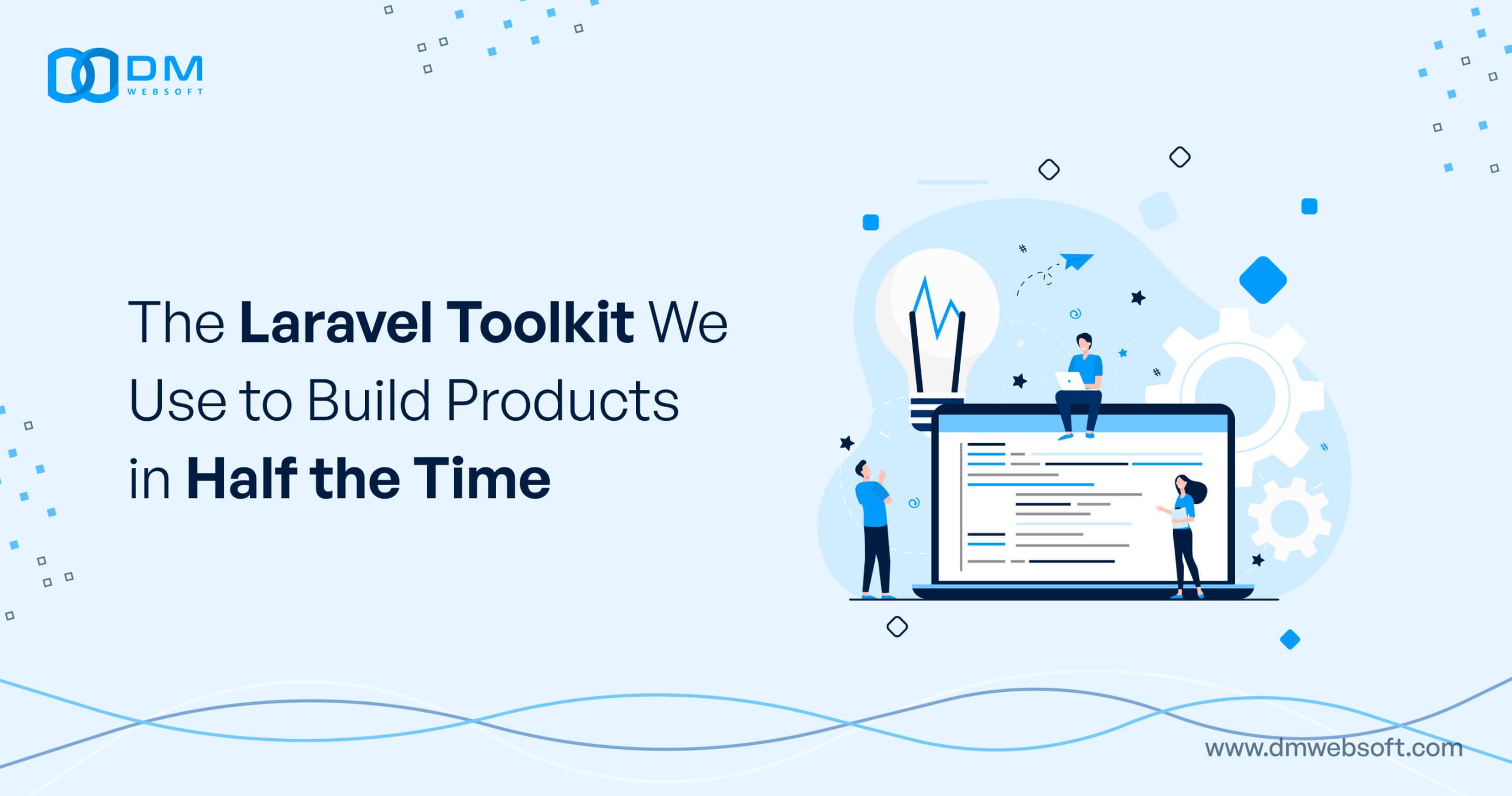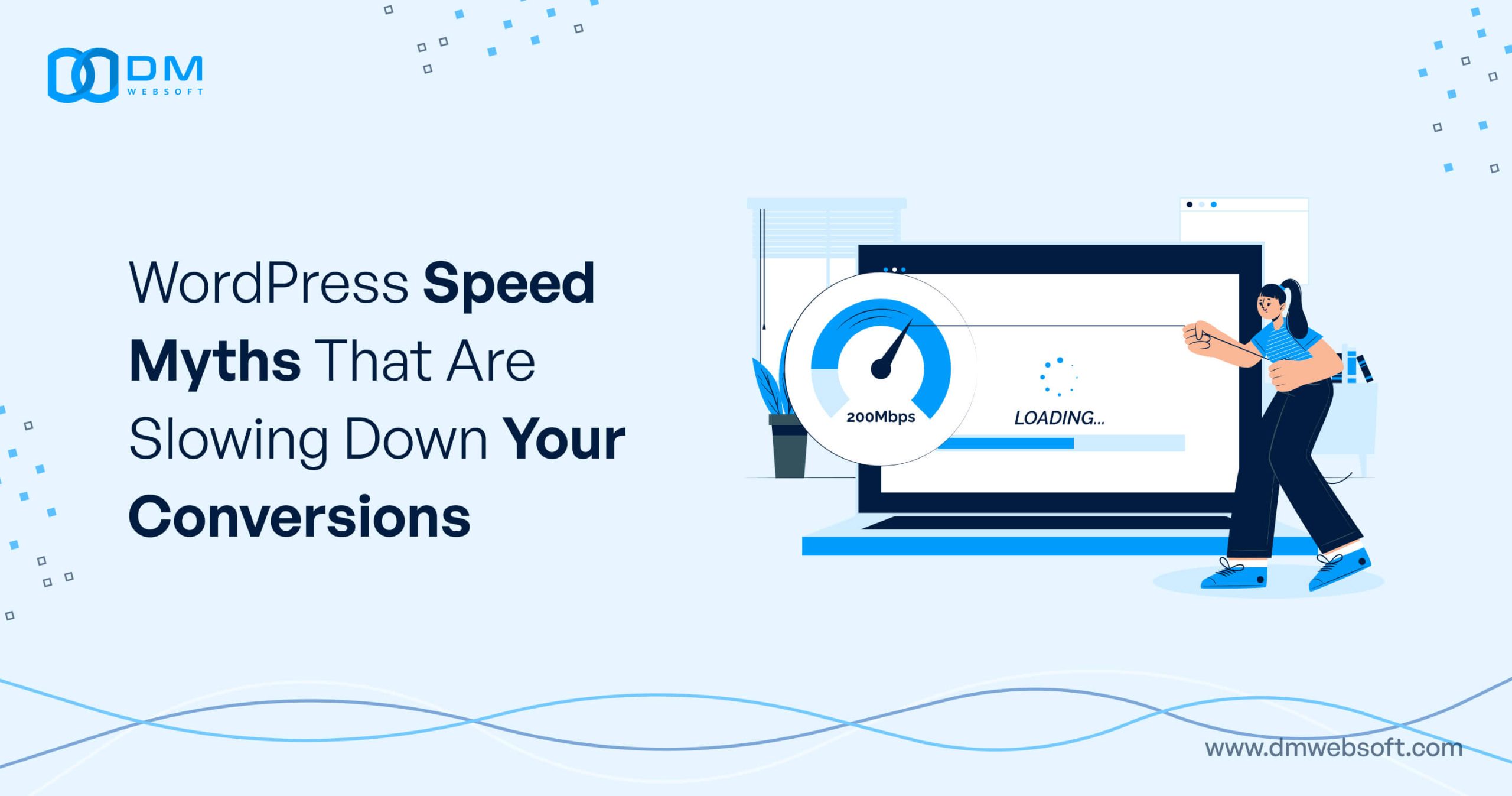DM WebSoft LLP exceeded our expectations! Their seasoned team of experts delivered a website that perfectly captures our brand essence. Their 15+ years of experience truly shine through in their exceptional web development skills.
Comparing Symfony and Zend Framework: Key Differences and Use Cases

TABLE OF CONTENT
Get in Touch
Introduction

Selecting a PHP framework is one of the most critical decisions in a web development project. There are two prevalent frameworks in the PHP community: Symfony and Zend Framework. Both hold very distinctive strengths and are suited for different types of projects. The paper thus makes a comparison between these two PHP frameworks to help developers and decision-makers choose the right package for their needs.
Symfony is known to be solid and flexible, well-supported in the community. It was made by Fabien Potencier in 2005 and has slowly become a foundation for modern PHP development. Extended documentation and tools for performance optimization in use with high reusability of components make Symfony one of the best choices for web application creation.
On the other hand, Zend Framework, now having rebranded into Laminas, is most known for its enterprise-level features and modular architecture. Initially created by Zend Technologies, the Zend Framework was architected to be very extendable and highly customizable to satisfy the need for applications that could be complex and of large scale. It pays great attention to solid security measures and comprehensive documentation, so developers can fully trust it to create robust and secure web services.
This blog post will compare Symfony vs. Zend Framework in detail, taking a closer look at their fundamental differences, features, and advantages. In this comparison, we’ll try to find out how both frameworks handle architecture, performance, security, and flexibility. We will also discuss their use cases and atypical real-world examples where these frameworks can be put to practice.
At DM WebSoft LLP, we’ve been working with Symfony and Zend Framework for the last couple of years in developing high-quality web applications. Our knowledge of these frameworks helps us choose the proper tool for every project so we can ensure successful outcomes for our customers. Therefore, knowing all the strengths and abilities of Symfony, we can support you in making a relevant decision for your new web development project.
By the end of this post, you will know precisely the main differences between Symfony and Zend Framework and how to choose the best framework for your specific needs: from building an e-commerce high-performance platform, robust content management system or secure enterprise application. With over ten years of experience and over 100 successfully deployed enterprise solutions, we are your partner in assured success. In the following parts, we will take a closer look at each framework and compare features, performance, security, and so on. But first, let’s find out some basic information about Symfony and Zend Framework.
Symfony and Zend Framework

Overview of Symfony
Symfony can be categorized as a PHP framework. In general terms, Symfony is a free software application used for developing web applications and a set of reusable PHP components. It was designed by Fabien Potencier and released to the public in 2005. Since then, Symfony has become hugely popular with developers for its robust nature, flexibility, and the large community surrounding the software.
Key Features of Symfony:
- Reusable Components: Reusability and decoupling are two important features while designing Symfony. This feature enables developers to use components independently in a PHP project. This makes the framework flexible and robust.
- Extensive Documentation: Probably, the strong side of Symfony is its detailed documentation, which provides a method for learning and utilizing the framework well for developers.
- High Performance: Symfony is optimized for performance. This contains a built-in set of tools to profile and optimize code, which easily identifies and ameliorates of performance bottlenecks.
- Very Active and Strong Community Support: Symfony has a big, dynamic community that is always working toward further advancement. There are several bundles (plugins) developed by the community that could be used to extend the functioning capabilities of the framework.
- Flexibility and Scalability: Symfony is highly flexible and scalable, valuable for any size of project, ranging from small websites to enterprise-level complex applications.
Overview of Zend Framework
Zend Framework, also known as Laminas these days, is a collection of professional PHP package installations that has more than 570 million. It was developed at first by Zend Technologies and gained popularity because it came with robust enterprise features that are highly customizable.
Key Features of Zend Framework:
- Modular architecture: The architecture of Zend Framework is modular, and it’s built with independent modules. This helps developers create highly flexible, tailor-made applications.
- Enterprise-level features: Zend Framework is designed for enterprise application development and comes with many enterprise-level features such as caching, authentication, database abstraction, and so on.
- Robust Security Features: There are full features within Zend Framework to avert security vulnerabilities, like SQL injection and cross-site scripting (XSS).
- Flexibility and Extensibility: The framework’s modular design inherently makes it exceedingly extensible so that developers can easily incorporate third-party libraries or develop custom components.
- Comprehensive Documentation: Just like Symfony, Zend Framework is thoroughly documented with ample resources to support developers in taking the best from it.
A Detailed Comparison of Symfony and Zend Framework
- Symfony Architecture: The architecture of Symfony is based on the Model-View-Controller (MVC) design pattern, which abstracts one application into three of the most common components: model, view, and controller. This separation of concerns greatly eases large applications’ handling because of complexity; at the same time, it helps reuse code.
- Zend Framework Architecture: Zend Framework follows the MVC design pattern but provides more application structure flexibility. It offers a set of loosely coupled components that can be used independently, thus allowing developers to create custom architectures according to their specific needs.
- Comparison: Both follow the approach of MVC, though Symfony is more structured, which can be appreciated by developers interested in a more organized framework. On the contrary, Zend Framework provides flexibility and can do better on complicated enterprise-level applications.
Performance and Scalability
- Symfony Performance: Symfony is designed for top performance and scalability. It has built-in profiling and optimization code tools that make it relatively easy to identify and deal with performance bottlenecks. Symfony also has some caching mechanisms that help enhance the performance of web applications.
- Zend Framework Performance: Zend Framework has been designed with performance in mind. Its modular architecture enables developers to include only the necessary components, thereby decreasing the overall footprint and increasing performance. Furthermore, Zend Framework supports various caching mechanisms to attain performance improvements.
- Comparison: These two frameworks have superb performance and scalability, but the ease of use with Symfony is slightly better due to the built-in tools for performance optimization.
Security Features
- Symfony Security: In-built security features such as CSRF protection, secure session handling, and a powerful authentication/authorization system. Another important feature that comes with Symfony is that it comes with tools for data encryption and input validation to ensure the security of web applications.
- Zend Framework Security: Protection against CSRF attacks, secure session management, and extended sets of authentication and authorization components. In contrast, Zend Framework enables modularity for third-party security libraries.
- Comparison: Both have robust security features, but in the case of Symfony, the security system is closely integrated with ease to work out security implementation and management within whole applications.
Flexibility and Extensibility
- Symfony Customization: Symfony is flexible because of its use of bundles or plugins that can be used to extend the functionalities of the framework. Developers have the option to create their very own bundles or make use of any bundle already available in the Symfony community to write new features into their applications.
- Zend Framework Customization: Due to its modular architecture, Zend Framework is incredibly extensible. In Zend Framework, developers can utilize the necessary components and implement the third-party libraries quickly or develop new components if needed for a specific project.
- Comparison: The modularity of Zend Framework creates a higher degree of flexibility and extensibility, rendering it a better choice in dealing with highly customized applications.
Advantages and Disadvantages of Symfony

Advantages
- Strong Community Support: There is a vast and robust community backing the Symfony framework, always working to improve it. It implies that an extensive document for developers, multiple tutorials, and many third-party bundles are available so the functionality of the framework can be extended.
- High Performance: Symfony is meant to run fast. With its built-in set of tools for profiling and optimization of code, it is easy for developers to identify and solve performance problems. All this makes Symfony an excellent pick for high-performance web applications.
- Strong Security: The framework encompasses many security features, such as protection against CSRF, secure session handling, robust authentication and authorization systems, and many others. The built-in security measures ensure application safety against most of the common vulnerabilities.
- Flexibility and Scalability: The framework is flexible and scalable for projects of any size, ranging from small websites to complex enterprise applications. Its use of reusable components makes it modular development thereby promoting code reuse and maintainability.
- Extensive Documentation: One of the strongest points of Symfony is that it has very detailed and comprehensive documentation. This helps the developers to learn and use the framework effectively.
Disadvantages
- Steep Learning Curve: Symfony is complex enough to scare a newbie away. Lots of features and following best practices make it time-consuming in learning.
- Structured Nature: The structured nature of Symfony can be beneficial; at the same time, on the flip side, it may be disadvantageous in certain situations. If someone needs more flexibility out of a framework, then he may not like the rigid nature of Symfony.
Advantages and Disadvantages of Zend Framework
Advantages
- Flexibility and Extensibility: The modular nature of the Zend Framework allows unlimited customizability. Developers can take only necessary ones, and they rapidly integrate third-party libraries or develop their components for custom enterprise-level features.
- Enterprise-Level Features: The Zend Framework is marked in the world of enterprise applications thanks to its built-in features for caching, authentication, and database abstraction. It will be a good candidate for extensive, complicated systems.
- Strong Security Measures: The framework has numerous security features that safeguard against the most common vulnerabilities, such as SQL injection and cross-site scripting (XSS). Besides, thanks to a modular approach, it allows easy integration of third-party security libraries.
- Comprehensive Documentation: Like Symfony, Zend Framework is also extensive regarding documentation. Many resources are available to take full advantage of the framework.
- Professional Support: Being professionally supported through its roots in Zend Technologies, this framework is very reliable whenever one is working on projects at enterprise levels that require technical solid backup.
Disadvantages
- Complexity: The flexibility of Zend Framework sometimes results in complicated management of applications. Its extensive features and high level of customization can overwhelm developers, especially new developers to the framework.
- Documentation Overload: The documentation, being elaborate, is adequate. This can, however, be overwhelming since the framework is mighty. Not everybody finds what they are looking for easily.
Conclusion
Both Symfony and Zend Framework have their distinct advantages but also have several issues. In this context, Symfony is much more suitable for performance-demanding applications because of its rich features and extensive community support. On the downside, steep learning curves may work against it, as well as the rigidity in its structure. The flexibility and enterprise-level features in Zend Framework are an excellent choice for complex application development, but its complexity, along with the vast documentation, is overwhelming.
At DM WebSoft LLP, we have the expertise to fully utilize both Symfony and Zend Framework to deliver quality web applications that work for you. Our experienced team will help you get around the intricacies of each framework and choose the best for your project. Please contact us to learn more about how we can work with you to help with your web development effort.
Common Use Cases

Typical Applications Built with Symfony
Symfony is a flexible and versatile PHP framework that can be used for a broad range of web applications. Its robustness and flexibility make it appropriate for various projects, from minor websites to large enterprise applications.
- High-Performance Web Applications: Symfony is designed for high-traffic websites, so it keeps up excellent performance. This makes it perfect for developing high-performance web applications with built-in performance optimization and caching tools.
- Example: One of the most popular content management systems, Drupal, is made even more efficient by using Symfony components to produce a high-level, robust, and scalable platform for managing content-heavy websites.
- E-Commerce Platforms: Symfony’s flexibility and scalability make it great for e-commerce platforms. Its vast security features ensure the secure nature of online transactions, and its modular architecture enables the extent of customization.
- Example: eZ Platform is a full-featured Enterprise Content Management System and e-commerce solution with complete flexibility. It builds upon Symfony as a software foundation to provide a stable, robust, and reliable platform for growing up businesses from small-scale to medium- and large-scale.
- Content Management Systems (CMS): The reusable and extensible nature and the quality of detailed documentation of Symfony make it a perfect candidate to build custom content management applications. They can develop modular and maintainable CMS solutions that are flexible and adaptable to specific needs.
- Example: Bolt—a lightweight CMS on top of Symfony—for flexible, friendly content management.
Custom web applications can also be developed in different industry verticals. Since Symfony has flexibility and powerful features, the same could be utilized in developing custom web applications across varied industry verticals. There is a gigantic library with thousands of reusable components to build tailor-made solutions in a high-productivity manner.
Example: OpenSky, an online marketplace for unique products, uses Symfony to allow a scalable and high-performance platform for its users.
Common Applications Developed with Zend Framework (Aka Laminas)
Enterprise-level functionality and modular nature have made Zend Framework popular among developers. Below are some of the standard apps or services that go well with a complex, enterprise-level feature need or scale.
- Enterprise Applications: Modular architecture and an extensive set of components make the framework perfect for constructing large-scale enterprise applications. Its full support of caching, authentication, and database abstraction ensures that enterprise applications are secure and performant.
- Sample: The BBC uses the Zend Framework inside its various back-end services to ensure scalability and application robustness within large-scale applications.
- E-Commerce Platforms: The high flexibility and extensibility of the Zend Framework make it a perfect match for e-commerce platform development uniquely attuned to one’s specific requirements.. Its solid security layer allows it to make secure online transactions. Its modular structure makes it possible to integrate with many third-party tools and services.
- Example: Magento, based on the widely used Zend Framework, is at the forefront of e-commerce systems regarding customization, modularity, and scalability, which can meet any enterprise’s needs.
- API Development: Zend Framework would be the best platform because of its modular and comprehensive protocol support components. It provides flexibility to create solid and scalable APIs according to any requirement.
- Example: Agavi is a flexible web application and API-building platform that relies heavily on the building blocks of Zend Framework.
- Web Services: The framework forms a perfect layer while making web services with all required features, like SOAP and REST. All its features, especially the security feature, are compelling when building web services to ensure they are reliable and secure.
- Example: Autotrader is a big online auto marketplace that builds secure web services with Zend Framework.
At DM WebSoft LLP, we bring together the powers of both Symfony and Zend Framework to develop top-quality web applications for our clients. Our expertise with these frameworks allows us to select the best tools for any job and deliver exceptional quality every time. Contact us today to learn how we can assist you with your web development requirements.
Future Outlook for Both Frameworks

Symfony Future Outlook:
- Continuous Innovation: Innovation in Symfony and its frequent updates keep competing with other PHP frameworks. Innovation by the Symfony community brings a lot of new features and updates.
- More Enterprise Adoption: With time, as enterprises will have more awareness and realize the positive changes it brought about, enterprise adoption will continue to increase for Symfony. The ability of the framework to handle complex, high-traffic applications has endeared it to some of the largest organizations.
Future Outlook of Zend Framework:
- Remained Relevant: Transition to Laminas has given a new lease of life to Zend Framework and ensured that the framework stays relevant within the PHP ecosystem. Robust security features coupled with modular architecture will continue to appeal to enterprises in the framework.
- Modernization: Ongoing modernization efforts around Laminas and its full support for PHP 8 and beyond bring the framework up-to-date with all the latest advancements in PHP development. Attracting new users while retaining old ones, this modernization will be something.
Conclusion
The future looks bright for Symfony and Zend Framework; they continue to evolve and adapt according to requirements in modern web development. Symfony has taken off in terms of performance and flexibility, which means the project has a bright future ahead with increased adoption. Like the Zend Framework, which is now moving to Laminas, the enterprise user base will remain strong with its features.
At DM WebSoft LLP, we are ever consoling ourselves in pushing forward to be at pace with the market trend and delivering the best to our customers by leveraging both the strengths of Symfony and Zend Framework in rolling out cutting-edge web applications. Allow our expert team to help you identify the proper framework that will fit your project’s needs to ensure scalability, security, and performance. Reach out now to learn more about how we can assist with all your web development needs.
Overview of DM WebSoft LLP’s Expertise in PHP Development
We at DM WebSoft LLP are the masters when it comes to PHP development with the aid of Symfony and Zend Framework. Our experienced developers will join and retain good expertise in both frameworks to choose a suitable instrument for each project for successful outcomes.
- Project Planning: We understand that every project should be well planned to know the client, requirements, and objectives and define the methods of achieving them. This ensures that we choose the proper framework and development approach for each project.
- Development Processes: Our development processes are the best in the industry, making the projects secure, scalable, and maintainable. Throughout the project life cycle, we follow agile methodologies that infuse flexibility and scope for continuous improvement.
- Client Collaboration: We believe in keeping open communication with our clients and working hand in hand with them. This ensures that, finally, they get their expectations met and their business objectives fulfilled.
- Security and Performance Maximization: We heavily invest in all security and performance features of every project. Leveraging inbuilt tools and functionality that come with Symfony and Zend Frameworks, our developers make sure applications are secure, performing well, and at scale.
Using Symfony in the Web Development Process
Symfony is a flexible, robust framework that lets you build web applications that are solid and high-performance. How we leverage the Symfony features within our projects:
- Reusable Components: Symfony modular components allow building applications easy to maintain and extend. Such modularity also enhances code reusability, saving development time and cost.
- Performance Optimization: Symfony has inbuilt tools for code profiling and optimization to ensure that the application remains high in performance. We use those tools to identify and take care of bottlenecks to ensure our applications can handle high traffic volumes.
- Security Features: Symfony comes with robust security features, from CSRF protection to secure session handling, which enables us to build an application that will protect sensitive user data. We also use Symfony’s authentication and authorization systems to manage user access and permissions effectively.
- Rich Documentation and Community: The documentation for Symfony is very rich, and this active community support gives us the much-needed resources and insights to solve problems and adapt best practices in our projects.
Conclusion

Choosing the proper PHP framework is crucial for any web development project. Symfony and Zend Framework are two of the most influential and flexible frameworks available, with their distinctive strengths and functionality features catering to different types of projects.
At DM WebSoft LLP, we have the experience and can work with both Symfony and Zend Framework in developing top-notch web applications. Our experienced developers would help you decide on the proper framework for your project so it remains scalable, secure, and high-performing. By that knowing what Symfony and Zend Framework are capable of and vigorous in, we can be of help to you to make the right decision on your next web development project.
Symfony is known for its high performance and extensive community support, while Zend Framework is valued for its modular architecture and enterprise-level features.
Symfony is often preferred for high-performance applications due to its built-in tools for profiling and optimizing code.
Yes, Zend Framework’s modular architecture and robust security measures make it ideal for enterprise applications.
Absolutely! DM WebSoft LLP has expertise in both Symfony and Zend Framework, helping you choose the best framework for your specific project needs.
Get Started Now !
What’s the Process ?
Request a Call
Consultation Meeting
Crafting a Tailored Proposal
Get Started Now !
Real Stories, Real Results. Discover What Our Clients Say

Working with DM WebSoft LLP was a game-changer for our business. Their technical prowess and innovative solutions transformed our online presence. A highly recommended web development agency with a stellar track record.

We are thrilled with the results DM WebSoft LLP delivered. Their deep understanding of web development coupled with years of expertise ensured a seamless and visually stunning website. True professionals!

In a digital age where first impressions matter, DM WebSoft LLP crafted a website that speaks volumes. The team’s attention to detail and commitment to quality set them apart. Thank you for making our vision a reality.

DM WebSoft LLP’s team demonstrated unparalleled expertise. Their ability to navigate complex technical challenges with ease is truly commendable. Choosing them for our web development needs was the best decision.

Exceptional service, unmatched skills! DM WebSoft LLP stands out as a leading web development agency. Their collaborative approach and commitment to excellence make them our go-to partner for all things web-related.

DM WebSoft LLP turned our ideas into a digital masterpiece. The seamless communication and timely delivery of our project showcased their professionalism. Highly impressed with the level of creativity and skill.

Our experience with DM WebSoft LLP was nothing short of amazing. From concept to execution, their team provided top-notch web development services. A reliable partner for businesses looking to elevate their online presence.

DM WebSoft LLP’s team of tech experts is second to none. Their wealth of experience reflects in the quality of their work. Our website not only meets but exceeds industry standards, thanks to their dedication.

Choosing DM WebSoft LLP was the best investment for our web development needs. Their team’s proficiency, coupled with a customer-centric approach, made the entire process smooth and enjoyable. A pleasure to work with!





